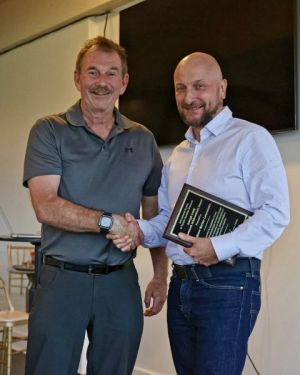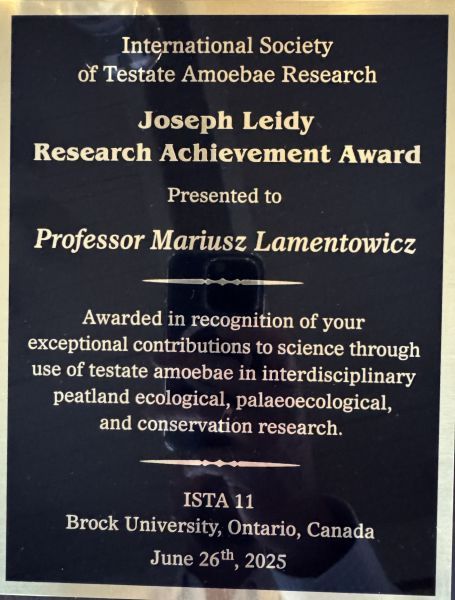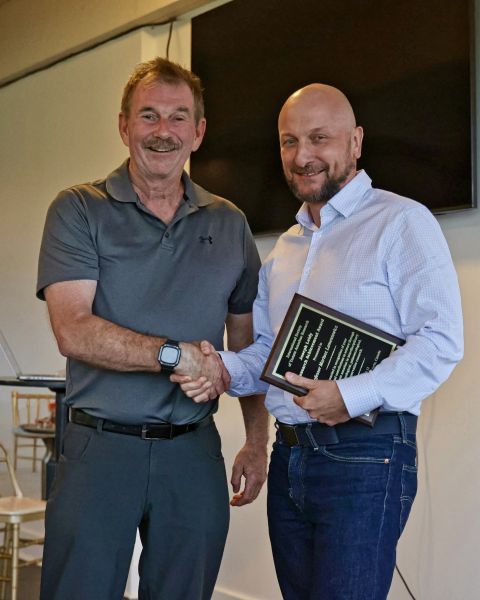Prof Mariusz Lamentowicz from the AMU Faculty of Geographical and Geological Sciences of the Adam Mickiewicz University, Poznań, has been honoured with the Joseph Leidy Research Achievement Award, presented by the International Society for Testate Amoeba Research (ISTAR) to outstanding scientists in recognition of their contribution to research on testate amoebae. This prestigious distinction belongs to researchers at the mid-to-late-career stage who have made significant academic contributions to this highly specialised discipline.
The award ceremony was held on June 26 during the ISTAR conference held at Brock University in Canada.
The Joseph Leidy Award commemorates Joseph Leidy (1823-1891), a prominent American scientist who played a significant role in the development of disciplines such as vertebrate palaeontology, parasitology, anatomy, forensic medicine and protozoology. His landmark 1879 publication, Freshwater Rhizopods of North America, was particularly significant for the study of testate amoebae, whose exquisite illustrations remain a valuable reference source for modern scientists to this day. Joseph Leidy was distinguished by his broad knowledge of natural history and was pivotal in shaping it. His achievements include some 1,500 scientific publications and monographs. He was a pioneer in the use of the microscope in biological research, contributing to its dissemination as an essential tool for scientific work. Leidy remains one of the most significant figures in the history of the life sciences.
It is another success for Prof. Mariusz Lamentowicz, who on June 26 also became one of the new full members and corresponding members of the Polish Academy of Sciences.
Mariusz Lamentowicz is a naturalist, geographer and palaeoecologist, professor of science and natural sciences, researcher at the AMU Institute of Geoecology and Geoinformation, and director of the Laboratory of Ecology of Climate Change. He specialised in wetland palaeoecology and shell amoeba ecology, focusing on the impact of climate change and human activities on wetland ecosystems, especially peatlands. He has authored numerous scientific publications and is one of the most cited Polish scientists in the Earth and environmental sciences, according to the Scopus database. In 2023, he was listed as one of the 2% most cited scientists in the world by the Stanford Ranking. He has conducted research in Central America, the Amazon, the Falkland Islands, Siberia, the Baltic States, Switzerland and the Czech Republic, among others. He was among the first in Poland to use the bioindicative properties of shell amoebae in palaeoecological reconstructions. He also belonged to the research group that was the first to put forward the thesis that the shells of crustacean amoebae serve not only to defend themselves,




